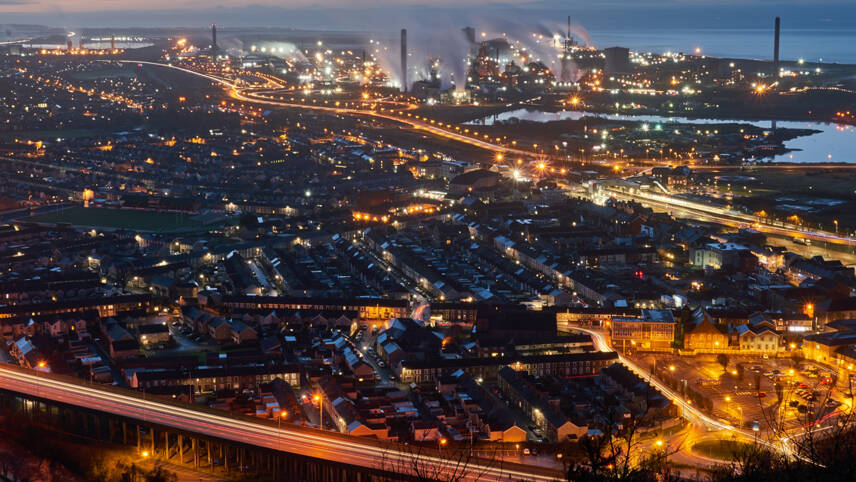Register for free and continue reading
Join our growing army of changemakers and get unlimited access to our premium content

Pictured: An aerial view of the industrial cluster at Port Talbot
The chair of Tata Group, which owns the steelworks, told the Financial Times late last week that it “will have to look at closures of sites” or at selling the site unless the Government comes to an agreement over the package within 12 months. The package has been on the table now for the best part of two years.
Natarajan Chandrasekaran’s statement reportedly came as a shock to unions representing steelworkers, who were unaware of this intention previously.
Subsequently, the FT was informed that Business and Energy Secretary Kwasi Kwarteng is unlikely to work with colleagues to make the decision before the new Conservative Party leader is in post and chooses a cabinet, following Boris Johnson’s resignation. Either Rishi Sunak or Liz Truss will be formally appointed in early September. Kwarteng is backing Truss in the leadership race.
Port Talbot is the UK’s largest steel plant, making it a major employer and contributor to the local economy, but also a significant contributor to emissions. The Welsh Government estimates that it generated 15% of Wales’ emissions in 2018.
Under Chandraekaran, Tata has proposed to close its two blast furnaces at Port Talbot and replace them with electric arc furnaces in phases through to the early 2030s. Blast furnaces use coking coal to melt iron ore at high temperatures. Electric arc furnaces, as the name suggests, enable the electrification of the process and the use of greater quantities of recycled feedstocks.
The cost of the change is estimated to be around £3bn, with Tata Group seeking £1.5bn from the Government. Trade unions are pressing the Group to clarify its plans for a just transition, given that arc furnaces would require fewer staff to operate than blast furnaces. Some 3,500 workers are currently directly employed at the plant, with a further 5,000 working in its value chain.
Trade union Unite’s national officer Tony Brady has stated that Port Talbot “must be maintained at all costs” given the number of jobs it supports. Unite and other unions have voiced concerns about the climate and job impact of simply offshoring steel production to economies such as China, but the priority very much seems to be the jobs rather than the climate.
Government responses
A spokesperson for the UK Government said: “Steel plays a critical role in all areas of the UK economy and Tata is a valued steel producer and significant employer in the UK.”
A spokesperson for the Welsh Government said: “Our focus continues to be to explore all avenues to secure a successful, low carbon future for Welsh steel. This goal is entirely possible, but it requires action and grip from the UK Government.”
Where’s the Government’s plan for net-zero steel?
The news from Tata Group comes shortly after the Environmental Audit Committee (EAC) received a letter from Kwarteng, responding to its inquiry on greening the sector. MPs were not entirely satisfied with his response.
The EAC is concerned that BEIS is not adequately supporting the uptake of technologies and processes proven to provide emissions reductions in the near term nor shielding the sector sufficiently from skyrocketing energy prices.
An EAC statement issued to media representatives reads: “Many of the innovations that Ministers are currently pinning their hopes on could take years before they result in any meaningful drop in emissions. There is also no indication that an alternative is in sight to the use of coking coal in the sector, which could dramatically reduce the use of fossil fuels in steel production. These unanswered questions risk setting the UK back compared with other national steel industries where progress towards green production is accelerating, not least in light of soaring energy costs for existing technologies.”
The EAC did “commend” the UK’s commitment to exploring net-zero-related issues, but warned that Ministers do not currently “fully grasp” the scale and practicalities of the UK steel sector’s net-zero transition.


“Electrification of the process” sounds simple enough-but from where does the electricity originate??”.
The only reliable, non-carbon, entirely controllable source of electricity in this country, no hydro to speak of, is nuclear.
Have we enough to run high current processes such as smelting???
Perhaps I speak in ignorance.
I was wrong, once!!
Richard Phillips